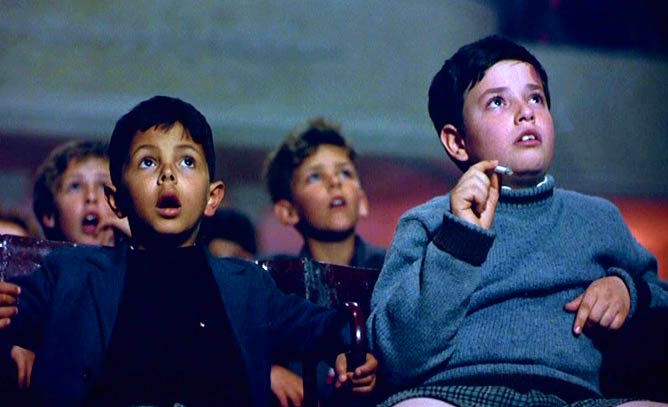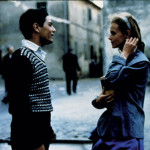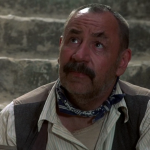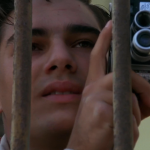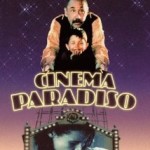Now here’s a question: If Cinema Paradiso had been made in English rather than Italian with subtitles, would it be talked about among the greatest movies of all time? Would it have won a stack of Oscars rather than just Best Foreign Language Film?
When I look at the Hollywood system and its reliance on formulaic genre movies such that ‘people who saw X will want to see Y’ I yearn for movies like Cinema Paradiso that rely solely on telling an absorbing story simply with actors who can give a 360 degree of their characters; I’d contend that this is what true cinema is about. If Cinema Paradiso picks up on anything it is more about Proust‘s exploration of nostalgia in À la recherche du temps perdu – memories can play funny tricks, and here it is explored in the context of the impact the past has on the character’s life.
Put simply, this is a joy to behold, a movie that speaks to every man remembering his childhood. I can’t sum up the movie any better than the blurb on the back of the DVD sleeve, so here goes:
“Salvatore, a successful film director, returns to his native Sicilian village for the funeral of his old friend Alfredo. He was the projectionist at the local Cinema Paradiso where Salvatore spent the happiest times of his childhood and developed his love of film. To the fatherless young boy Alfredo became a father figure who guided and loved him. His return also brings back poignant memories of his teenage love, Elena, whom he had to leave in order to pursue his dream.”
And also the words of Peter Bradshaw in his Guardian review:
“An elegiac film about childhood, the movies and Sicily…Tornatore conflates the sacred and profound beautifully.”
The measure of success here is precisely that – showing childhood through a nostalgically bittersweet rose-tinted lens, showing how a true lifelong passion develops, in this case for movies set against the Sicilian landscape and the context of first true love. Those ingredients are formed and moulded with great sensitivity in a mood that is joyful but tinged with sadness and regret.
That this works so brilliantly is due in no small measure to fine writing and direction by Giuseppe Tornatore and a cast including the excellent Philippe Noiret, playing Alfredo, and as Salvatore at the various stages of his life, Toto Cascio, Marco Leonardi and Jacques Perrin, and credit too to glorious cinematography by Blasco Giurato and music by Ennio Morricone. But it is the children whose faces light up at the sight of the movies, and they who will best be remembered from Cinema Paradiso – and the kissing movies montage near the end of the film.
This is self-reverential movie, possibly at least in part autobiographical, such is the authenticity with which is is played. Shame then that it was released in various different versions, not least the obligatory extended director’s cut. Not having seen anything other than the international release I can’t say which is best, though bringing the adult Elena into the story in the director’s cut could be a double-edged sword. Someday I will see and review!
Shame too that it ended up as an intellectual football about the supposed genre of “nostalgic postmodernism” rather than being enjoyed at face value for its own merits. This is a movie that stays long in the memory for being what it is, not for trying to be something more or self-consciously placing itself within the context of a catalogue of other movies. If you have not already done so, please get the DVD of at least one cut of Cinema Paradiso and enjoy.

